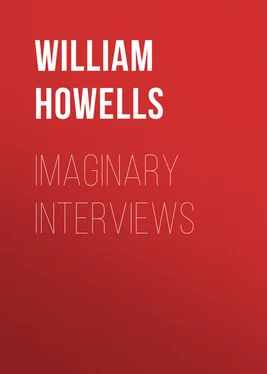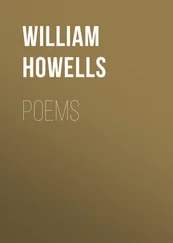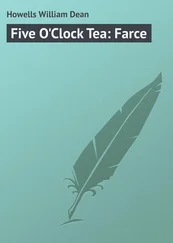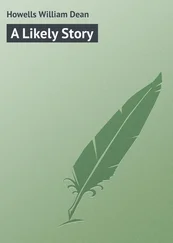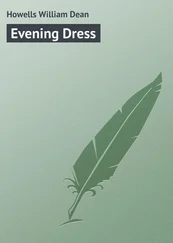William Howells - Imaginary Interviews
Здесь есть возможность читать онлайн «William Howells - Imaginary Interviews» — ознакомительный отрывок электронной книги совершенно бесплатно, а после прочтения отрывка купить полную версию. В некоторых случаях можно слушать аудио, скачать через торрент в формате fb2 и присутствует краткое содержание. Жанр: foreign_prose, на английском языке. Описание произведения, (предисловие) а так же отзывы посетителей доступны на портале библиотеки ЛибКат.
- Название:Imaginary Interviews
- Автор:
- Жанр:
- Год:неизвестен
- ISBN:нет данных
- Рейтинг книги:3 / 5. Голосов: 1
-
Избранное:Добавить в избранное
- Отзывы:
-
Ваша оценка:
- 60
- 1
- 2
- 3
- 4
- 5
Imaginary Interviews: краткое содержание, описание и аннотация
Предлагаем к чтению аннотацию, описание, краткое содержание или предисловие (зависит от того, что написал сам автор книги «Imaginary Interviews»). Если вы не нашли необходимую информацию о книге — напишите в комментариях, мы постараемся отыскать её.
Imaginary Interviews — читать онлайн ознакомительный отрывок
Ниже представлен текст книги, разбитый по страницам. Система сохранения места последней прочитанной страницы, позволяет с удобством читать онлайн бесплатно книгу «Imaginary Interviews», без необходимости каждый раз заново искать на чём Вы остановились. Поставьте закладку, и сможете в любой момент перейти на страницу, на которой закончили чтение.
Интервал:
Закладка:
"No, don't begin on the novelists! Every one knows your heresies there, and would like to burn you along with the romances which I've no doubt you would still commit to the flames. I see you are the Bourbon of criticism; you have learned nothing and forgotten nothing. But why don't you turn your adamantine immutability to some practical account, and give the world a list of The Hundred Worst Books?"
"Because a hundred books out of the worst would be a drop out of the sea; there would remain an immeasurable welter of badness, of which we are now happily ignorant, and from which we are safe, as long as our minds are not turned to it by examples."
"Ah," our visitor said, "I see that you are afraid to confess yourself the popular failure as a critic which you are. You are afraid that if you made a list of The Hundred Worst Books you would send the classes to buying them in the most expensive binding, and the masses to taking them out of all the public libraries."
"There is something in what you say," the Easy Chair confessed. "Our popular failure as a critic is notorious; it cannot be denied. The stamp of our disapproval at one time gave a whole order of fiction a currency that was not less than torrential. The flood of romantic novels which passed over the land, and which is still to be traced in the tatters of the rag-doll heroes and heroines caught in the memories of readers along its course, was undoubtedly the effect of our adverse criticism. No, we could not in conscience compile and publish a list of The Hundred Worst Books; it would be contrary, for the reasons you give, to public morals."
"And don't you think," the observer said, with a Socratic subtlety that betrayed itself in his gleaming eye, in the joyous hope of seeing his victim fall into the pit that his own admissions had digged for him, "and don't you think that it would also bring to you the unpleasant consciousness of having stiffened in your tastes?"
"It might up to a certain point," we consented. "But we should prefer to call it confirmed in our convictions. Wherever we have liked or disliked in literature it has been upon grounds hardly distinguishable from moral grounds. Bad art is a vice; untruth to nature is the eighth of the seven deadly sins; a false school in literature is a seminary of crime. We are speaking largely, of course – "
"It certainly sounds rather tall," our friend sarcastically noted, "and it sounds very familiar."
"Yes," we went on, "all the ascertained veracities are immutable. One holds to them, or, rather, they hold to one, with an indissoluble tenacity. But convictions are in the region of character and are of remote origin. In their safety one indulges one's self in expectations, in tolerances, and these rather increase with the lapse of time. We should say that your theory of the stiffening tastes is applicable to the earlier rather than the later middle life. We should say that the tastes if they stiffen at the one period limber at the other; their forbidding rigidity is succeeded by an acquiescent suppleness. One is aware of an involuntary hospitality toward a good many authors whom one would once have turned destitute from the door, or with a dole of Organized Charity meal-tickets at the best. But in that maturer time one hesitates, and possibly ends by asking the stranger in, especially if he is young, or even if he is merely new, and setting before him the cold potato of a qualified approval. One says to him: 'You know I don't think you are the real thing quite, but taking you on your own ground you are not so bad. Come, you shall have a night's lodging at least, and if you improve, if you show a tendency to change in the right direction, there is no telling but you may be allowed to stay the week. But you must not presume; you must not take this frosty welcome for an effect of fire from the hearth where we sit with our chosen friends.' Ten to one the stranger does not like this sort of talk, and goes his way – the wrong way. But, at any rate, one has shown an open mind, a liberal spirit; one has proved that one has not stiffened in one's tastes; that one can make hopeful allowances in hopeful cases."
"Such as?" the observer insinuated.
"Such as do not fit the point exactly. Very likely the case may be that of an old or elderly author. It has been only within a year or two that we have formed the taste for an English writer, no longer living, save in his charming books. James Payn was a favorite with many in the middle Victorian period, but it is proof of the flexibility of our tastes that we have only just come to him. After shunning Anthony Trollope for fifty years, we came to him, almost as with a rush, long after our half-century was past. Now, James Payn is the solace of our autumnal equinox, and Anthony Trollope we read with a constancy and a recurrence surpassed only by our devotion to the truth as it is in the fiction of the Divine Jane; and Jane Austen herself was not an idol of our first or even our second youth, but became the cult of a time when if our tastes had stiffened we could have cared only for the most modern of the naturalists, and those preferably of the Russian and Spanish schools. A signal proof of their continued suppleness came but the other day when we acquainted ourselves with the work of the English novelist, Mr. Percy White, and it was the more signal because we perceived that he had formed himself upon a method of Thackeray's, which recalled that master, as the occasional aberrations of Payn and Trollope recall a manner of him. But it is Thackeray's most artistic method which Mr. White recalls in his studies of scamps and snobs; he allows them, as Thackeray allows Barry Lyndon and the rest, to tell their own stories, and in their unconsciousness of their own natures he finds play for an irony as keen and graphic as anything in fiction. He deals with the actual English world, and the pleasure he gave us was such as to make us resolve to return to Thackeray's vision of his own contemporaneous English world at the first opportunity. We have not done so yet; but after we have fortified ourselves with a course of Scott and Dickens, we are confident of being able to bear up under the heaviest-handed satire of Vanity Fair . As for The Luck of Barry Lyndon and The Yellowplush Papers , and such like, they have never ceased to have their prime delight for us. But their proportion is quite large enough to survive from any author for any reader; as we are often saying, it is only in bits that authors survive; their resurrection is not by the whole body, but here and there a perfecter fragment. Most of our present likes and dislikes are of the period when you say people begin to stiffen in their tastes. We could count the authors by the score who have become our favorites in that period, and those we have dropped are almost as many. It is not necessary to say who they all are, but we may remark that we still read, and read, and read again the poetry of Keats, and that we no longer read the poetry of Alexander Smith. But it is through the growth of the truly great upon his mature perception that the aging reader finds novel excellences in them. It was only the other day that we picked up Hawthorne's Scarlet Letter , and realized in it, from a chance page or two, a sardonic quality of insurpassable subtlety and reach. This was something quite new to us in it. We had known the terrible pathos of the story, its immeasurable tragedy, but that deadly, quiet, pitiless, freezing irony of a witness holding himself aloof from its course, and losing, for that page or two, the moralist in the mere observer, was a revelation that had come to that time of life in us when you think the tastes stiffen and one refuses new pleasures because they are new."
Our visitor yawned visibly, audibly. "And what is all this you have been saying? You have made yourself out an extraordinary example of what may be done by guarding against the stiffening of the tastes after the end of second youth. But have you proved that there is no such danger? Or was your idea simply to celebrate yourself? At moments I fancied something like that."
Читать дальшеИнтервал:
Закладка:
Похожие книги на «Imaginary Interviews»
Представляем Вашему вниманию похожие книги на «Imaginary Interviews» списком для выбора. Мы отобрали схожую по названию и смыслу литературу в надежде предоставить читателям больше вариантов отыскать новые, интересные, ещё непрочитанные произведения.
Обсуждение, отзывы о книге «Imaginary Interviews» и просто собственные мнения читателей. Оставьте ваши комментарии, напишите, что Вы думаете о произведении, его смысле или главных героях. Укажите что конкретно понравилось, а что нет, и почему Вы так считаете.
